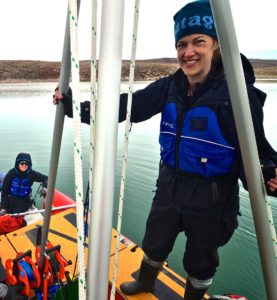 Interview and article by: Suchitra Sankaranarayan; Photo by:Alex P. Taylor
Interview and article by: Suchitra Sankaranarayan; Photo by:Alex P. Taylor
Quaternary geologist and paleolimnologist at Northwestern University, Associate Prof. Yarrow Axford likes spending time outdoors. Growing up in rural Maine, Yarrow became fascinated that there’s a scientific explanation for every landscape we see. An undergraduate class at Mount Holyoke College affirmed her interest in geology and she is following her passion in studying the climate history of the Arctic region using sediment from lakes.
She vividly remembers a defining moment in her undergraduate years, where in an environmental sciences class she was shown a graph with some of the earliest data from ice cores drilled from the Greenland ice sheet, showing huge swings in climate that happened many thousands of years ago. “It was a moment of awe,” she recollects. Yarrow then went on to do fieldwork in Alaska, an opportunity she jumped on immediately. Her research work then got her involved early on in studying climate sciences and she hasn’t left the field since.
Yarrow loves her job. Her laboratory and office walls are strewn with beautiful photographs from Alaska and Greenland, where she does fieldwork collecting sediment cores to understand the changes in climate over the years. “Field work definitely generates the best photos”, she laughs, “the other eleven months we’re at the computer or in the lab.” She is delighted that she can combine travel, adventure and exploration and work in places where very little science has been done. It excites her when she visits different environments and witnesses the landscapes with her own eyes to answer questions and fill gaps in scientific information about the climate history of remote places that are challenging to work in. “It feels nice to get away from email for a few weeks,” she jokes. “You’re focused on a very narrow range in your to-do list, that includes staying alive – which you don’t normally think of so much. Life in the field is simpler than our complicated day-to-day lives at home, but still there is a lot to be careful and aware of while being thoughtful and precise in science.” Her role in the field is not limited to scientific exploration; when she is expedition leader she also ensures her team is safe, well-fed and happy. In recent years, experienced graduate students have taken on that role, and Yarrow is very proud to be training another generation of polar researchers.
Being a climate scientist is hard, not just on barren Arctic terrain but also in today’s political context that threatens climate science. Yarrow has been the recipient of angry emails when her work is covered by the media but she deals with this very optimistically. “Within my community, it’s a badge of honour. We tell each other it means your work is having impact,” she says. Nevertheless, it still frustrates her when she finds herself correcting and debunking misinformation and myths repeatedly. She wishes the conversation would evolve as much as the science has over the decades and is disheartened at how the public has been convinced of alleged discord among climate scientists, on topics for which there is a strong scientific consensus.
Added to that, Yarrow is one among relatively few women field scientists in a largely male dominated discipline. She feels she is fortunate to be in her dream role as she is today. However, it took her time and persistence to get there. Through her years of graduate study, she recalls often feeling out of place in classrooms, labs, meetings and field camps where the majority of mentors and peers were men. She cherishes working with women collaborators and finds the interaction helpful in not making her feel like an anomaly. Even in her lab today, a majority of her students happen to be women, an atmosphere Yarrow believes is conducive for women to avoid that feeling of “otherness”. She shares an incident where women students helped each other out on what to expect with mundane things on excursions to Greenland, such as personal hygiene. Hearing them share quirky advice and reviews on different products made her realize how different her own graduate experience would have been in such a work environment.
Challenges exist everywhere but Yarrow keeps her spirits up in doing science. She is driven by curiosity and in uncovering the next discovery. Every new piece of data thrills her, pushing her to answer the next question in advancing climate science. She is inspired by everyone she has worked with, absorbing the little things she has learnt from the many people she has worked with. Many of her role models have been male mentors who have taught her in her years of school, but she has also had a few special senior women to look up to. “Every collaborator, women in particular, can help provide an image of how to project authority and confidence while still bringing your authentic personality to the table,” she says.
Aside from research, Yarrow likes to spend time with her family. Her time and energy are always in demand as she balances running a lab, teaching and parenting. She expresses how it was difficult to do field work when also dealing with an infant as it was not possible being away for extended periods of time and appreciates her husband for being a large force in making her career work. Answering the widely asked question – can women have it all? – Yarrow believes yes, in the course of a lifetime but realistically, not all at once. She ascribes metaphorical seasons to phases of her life and career, where in each season one has different things to focus on with new strengths and challenges. “Things I want to accomplish may not always be compatible with each other so I focus on one or two types of work in one career ‘season.’” And while she may not be able to do everything all at once, this change allows her to shift gears and keep a fresh outlook on life. As she continues to rock at science, she hopes to encourage more early-career women to disregard societal norms and pursue their intellectual passions, so that their energy can go into propelling their careers.

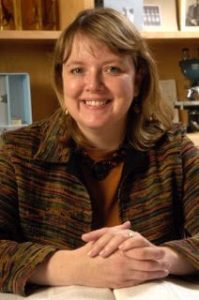 Dr. Kay Macleod is known for her pioneering research into autophagy and mitochondrial dysfunction in cancer. Now an Associate Professor and Chair of the Committee on Cancer Biology at the University of Chicago, Kay created a pathway to success that was uniquely her own. Growing up on the islands of north-west Scotland, Kay’s childhood embraced daily encounters with nature, around shoreline rock pools and forests near her home. This strong affinity with nature feeds Kay’s scientific passion to this day. But Kay’s career-defining moment came when a TV program featuring Bob Weinberg, the renowned MIT cancer biologist, aired around the same time that Kay’s grandmother died from ovarian cancer. A healthy non-smoker, the cause of her grandmother’s ovarian cancer was unknown. This opened Kay’s eyes to the scientific challenge of trying to understand what causes cancer. Bob Weinberg’s explanation of oncogenes and how they drive cancer intrigued Kay and made her realize that this was the scientific endeavor she wanted to pursue. High school teachers recognized Kay’s inquisitive mind and pushed her towards a career in medicine, which was expected for young students with strong grades and an interest in the disease. But when applying to college she realized, “It’s the science of medicine that’s more interesting to me than patient care.” Kay ultimately decided to study molecular biology at university. Her education and career have taken her around the world – after earning a Bachelor of Science degree with honors at the University of Edinburgh and her Ph.D. at the University of Glasgow in Scotland, Kay ventured to the Pasteur Institute in France for post-doctoral research followed by a highly productive post-doctoral fellowship at MIT. Since 2001, Kay has carried out innovative cancer research in her own laboratory at the University of Chicago. Her experiences throughout her career provide significant insight for young scientists.
Dr. Kay Macleod is known for her pioneering research into autophagy and mitochondrial dysfunction in cancer. Now an Associate Professor and Chair of the Committee on Cancer Biology at the University of Chicago, Kay created a pathway to success that was uniquely her own. Growing up on the islands of north-west Scotland, Kay’s childhood embraced daily encounters with nature, around shoreline rock pools and forests near her home. This strong affinity with nature feeds Kay’s scientific passion to this day. But Kay’s career-defining moment came when a TV program featuring Bob Weinberg, the renowned MIT cancer biologist, aired around the same time that Kay’s grandmother died from ovarian cancer. A healthy non-smoker, the cause of her grandmother’s ovarian cancer was unknown. This opened Kay’s eyes to the scientific challenge of trying to understand what causes cancer. Bob Weinberg’s explanation of oncogenes and how they drive cancer intrigued Kay and made her realize that this was the scientific endeavor she wanted to pursue. High school teachers recognized Kay’s inquisitive mind and pushed her towards a career in medicine, which was expected for young students with strong grades and an interest in the disease. But when applying to college she realized, “It’s the science of medicine that’s more interesting to me than patient care.” Kay ultimately decided to study molecular biology at university. Her education and career have taken her around the world – after earning a Bachelor of Science degree with honors at the University of Edinburgh and her Ph.D. at the University of Glasgow in Scotland, Kay ventured to the Pasteur Institute in France for post-doctoral research followed by a highly productive post-doctoral fellowship at MIT. Since 2001, Kay has carried out innovative cancer research in her own laboratory at the University of Chicago. Her experiences throughout her career provide significant insight for young scientists.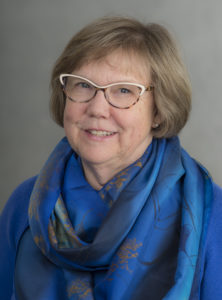
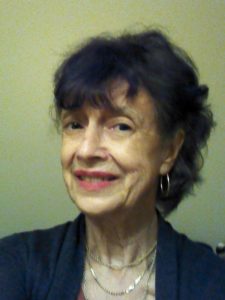
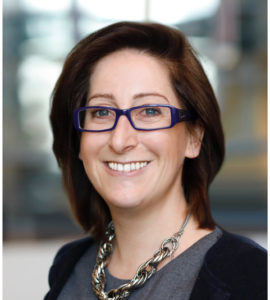
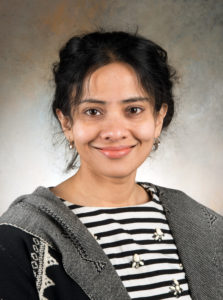
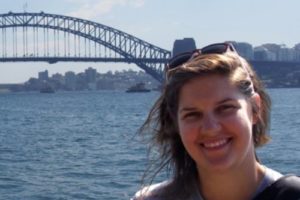 A great role model
A great role model